History of Andres Carlos Gonzalez, Sr.
Written by Nelle Spilsbury Hatch in 1967
|
"Andres Carlos Gonzalez, Sr was born .. to .. Juan Francisco Gonzalez and Juliana Rodriguez Gonzalez and was the tenth child in a family of fifteen children.
"Early in life Andres' parents conceived the idea of educating him to be a lawyer. His mother thus began saving her small change for that purpose, hoping in some way that they might send him to the University of Mexico, the oldest university in the western hemisphere. His father, Don Juan Francisco, was a school teacher and had instilled in his sons a desire of knowledge and learning.
"Manrique Gonzalez, Andres' older brother, had left Nadadores in about the year 1895, to find work. In the course of time he secured employment with David A. Stevens, a railroad contractor from the Mormon colonies in northern Mexico. David Stevens, after having finished his contract with the railroad, invited Manrique to return with him to the colonies and his invitation was accepted.
"After the turn of the century, Manrique wrote to his family in Nadadores telling them that he had joined The Church of Jesus Christ of Latter-day Saints and that he had married a Mormon [Sarah Olive Merrell]. His baptism took place in 1899. He further wrote that he was employed as a teacher of Spanish in the Juarez Stake Academy. This news stimulated Andres to venture forth in the hope that he could learn the English language among the English-speaking Mormons in Chihuahua. He left his home town in March of 1904 and went to Ciudad Juarez, Mexico, where he met Isaac Pierce a Mormon who operated a lumber company in Ciudad Juarez. In glowing terms he described to Andres the advantages for young people at the Juarez Stake Academy and thus encouraged him to go on to Colonia Juarez. He boarded the Northwestern Railroad and arrived at Nuevo Casas Grandes, about fifteen miles from Colonia Juarez, delighted that he was nearing his destination. Here he boarded a horse-drawn stage. While traveling along, the stage driver, Harlan Johnson, described the Mormon people and their way of life to Andres. He decided if he were going to live among these good people, he should and would respect their customs. 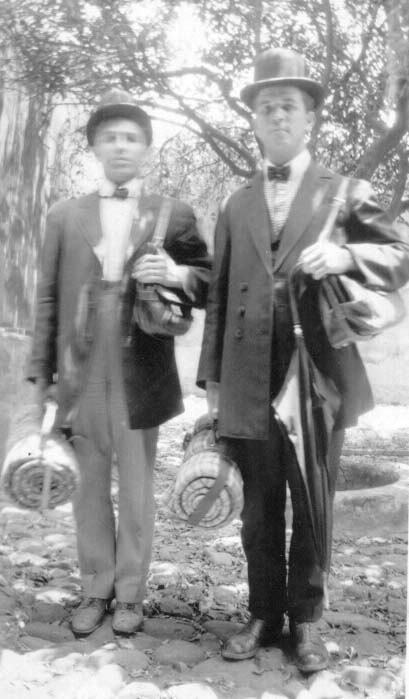
"When Harlan explained the Word of Wisdom, something unheard of by Andres, he concluded that these Mormons must be different from any other people in the world. As the stage rounded the hill at the end of the journey and descended into the beautiful, verdant Colonia Juarez Valley, Andres took his cigarette from his lips, threw it upon the ground and said to Harlan, 'This is the last cigarette I'll smoke.'
"In Colonia Juarez, Bishop Joseph C. Bentley invited Andres to room and board at his home. The young boy came to respect and love this man and looked upon him as a father. He was supremely happy living in the home of Aunt Maggie Bentley and later in Aunt Maud's home. At first he milked cows for his room and board. Bishop Bentley arranged for him to work with Marius Mickelson, who was the stone cutter for the new academy building. This occupation enabled Andres to pay for books and schooling. In addition, he learned much about this artful craft. He also learned about the religion of the Mormons. Marius Mickelson bore testimony to the value of paying a tithe of all earnings and Bishop Bentley affirmed that there was indeed a great blessing in observing this law of the Church. Nevertheless, he was under no obligation to pay tithing. Andres decided that he wanted to pay this tithing and did so for almost a year before he was baptized, on February 3, 1905. His brother, Manrique, baptized him and on the following day, which was his eighteenth birthday, he was confirmed a church member by Apostle Mathias F. Cowley.
"Later when Manrique left the Academy to attend the Agricultural College at Logan, Utah, Andres took his place teaching Spanish. He wrote articles for the school publication, The Southern Rays, and from time to time included some of his own poetry. He participated in all social activities and in school plays which were presented by the Dramatic Club. He felt at home with the people of Colonia Juarez, and he came to love them very much.
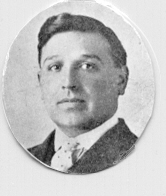 "At the close of school in 1907, he went to Colonia Dublan where he accepted a position as stenographer with Henry Eyring Bowman, general manager of the Union Mercantile, a general merchandise co-op with branch stores in Colonia Juarez and Colonia Diaz. "At the close of school in 1907, he went to Colonia Dublan where he accepted a position as stenographer with Henry Eyring Bowman, general manager of the Union Mercantile, a general merchandise co-op with branch stores in Colonia Juarez and Colonia Diaz.
"The following year, on December 12, 1908, Andres married Minnie Spencer, daughter of Franklin and Hannah Jane Spencer. Later he left the Union Mercantile firm to become the bookkeeper for the Pajarito Mining Company where he earned American dollars and was paid on an American pay scale. At the Pajarito, he enjoyed the companionship of Andrew Duthey who always remained a true friend and, as one who shared his name, his tocayo.
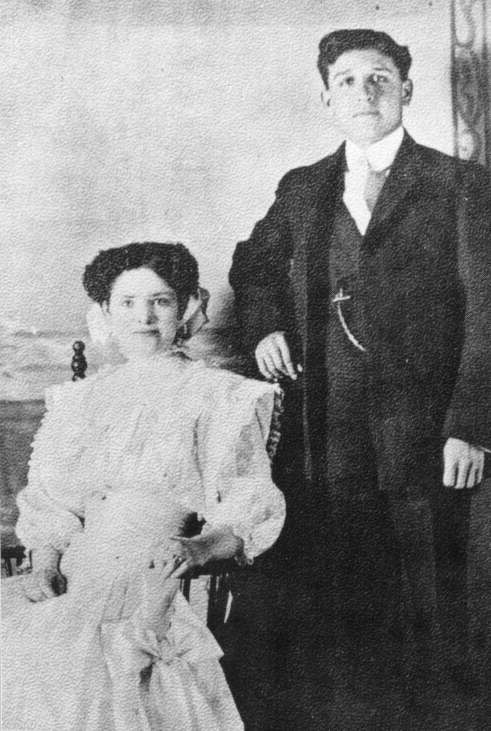
"Andres came to love the Gospel more each day and felt that he had been led to the colonies to accept it. Every principle seemed to fit in place within his heart, a place prepared for it long before. His old habits were never a temptation to him. He loved to obey the Lord's requirements and appreciated every call in the Ward and every step in the Priesthood. He received the Melchizedek Priesthood when he was ordained an Elder on December 20, 1909, by Bishop Albert D. Thurber in Colonia Dublan.
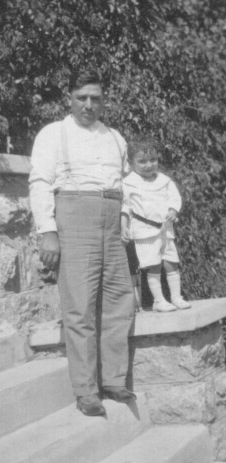 "In August of 1910, Andres received a letter from 'Box B' in Salt Lake City, Utah, from the General Authorities of the Church. It was a call to go on a mission. He labored in the Mexican Mission for two years under President Rey L. Pratt. During these two years he had many experiences where the protection of the Lord was manifested. At one time, he and a companion slept in a crowded little home where one of the children was very ill. When they arose the following morning they discovered that the child had a severe case of smallpox; but the Lord shielded them from this infectious disease. On another occasion an effort was made to poison him and his companion, but it had no effect upon them. "In August of 1910, Andres received a letter from 'Box B' in Salt Lake City, Utah, from the General Authorities of the Church. It was a call to go on a mission. He labored in the Mexican Mission for two years under President Rey L. Pratt. During these two years he had many experiences where the protection of the Lord was manifested. At one time, he and a companion slept in a crowded little home where one of the children was very ill. When they arose the following morning they discovered that the child had a severe case of smallpox; but the Lord shielded them from this infectious disease. On another occasion an effort was made to poison him and his companion, but it had no effect upon them.
"The Madero Revolution began in 1910, and in the mission field Andres had many faith promoting experiences. At one time while laboring between Mexico City and the State of Morelos, he and a companion were captured by the Zapata rebels and were released. Later the same day, they were seized by some of Madero's troops on the same charge. The missionaries were then taken to Mexico City to await their fate at the hands of Francisco L. Madero himself, President of Mexico. The Revolutionists expected the President to deal harshly with these spies, but when he learned that Andres was from Coahuila, Madero's own home state, (known in Mexican history as the Queen State of Mexico and further discovered that Andres was the son of Professor Juan Francisco Gonzalez, whom he knew personally, President Madero embraced him and bade the accusers to leave.
"The President was surprised and delighted to learn that Andres was a Mormon, for Madero indicated that he was acquainted with President Anthony W. Ivins, Bishop Bentley, Orson Pratt Brown and other men of the Mormon colonies. Some of the first battles of the Revolution were fought in the Casas Grandes area and Madero himself had been wounded there. It was at that time that Madero had met and learned to appreciate the Mormons.
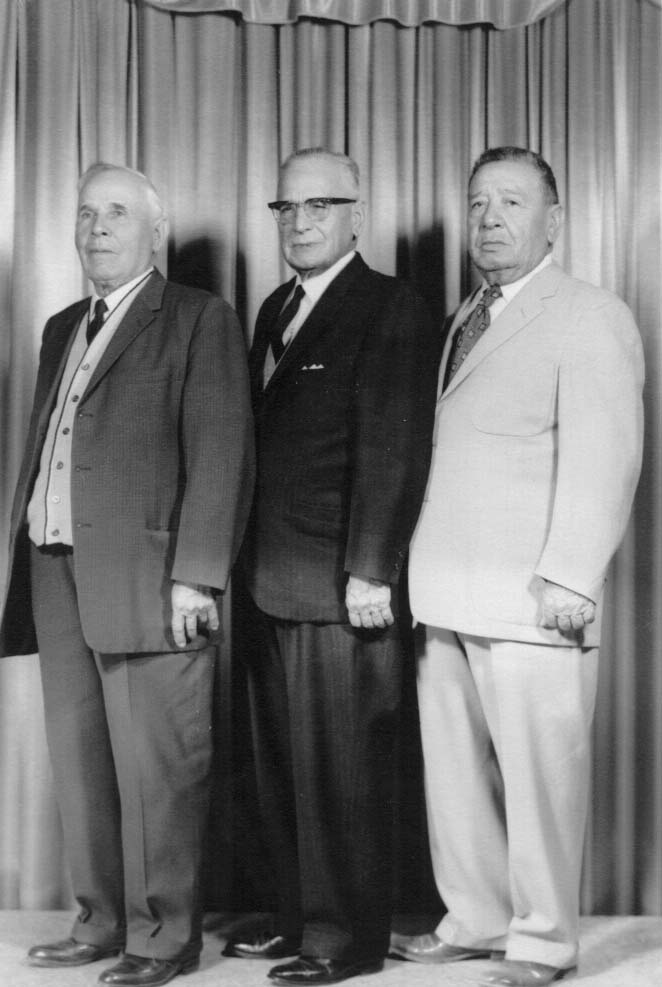 "President Madero asked many questions about his old friends and stated, 'Those gentlemen are fine men, the kind Mexico needs to develop our country.' The Vice President, Pino Suarez, was present while the President related many things about the colonies and their people. This gave Andres the opportunity to teach some of the Gospel principles, fulfilling a Patriarchal Blessing promise which stated that he would teach the Gospel 'from the highest to the lowest' of his nation. He and his companion had been teaching some humble Indians before they were captured by the Zapatistas and therefore each had at hand a Book of Mormon. This they gave to the President and to the Vice President of Mexico. The two gentlemen were courteous and seemed interested in what the Elders told them of the early inhabitants of this Western Hemisphere. Both the President and the Vice President promised to read the Book of Mormon. "President Madero asked many questions about his old friends and stated, 'Those gentlemen are fine men, the kind Mexico needs to develop our country.' The Vice President, Pino Suarez, was present while the President related many things about the colonies and their people. This gave Andres the opportunity to teach some of the Gospel principles, fulfilling a Patriarchal Blessing promise which stated that he would teach the Gospel 'from the highest to the lowest' of his nation. He and his companion had been teaching some humble Indians before they were captured by the Zapatistas and therefore each had at hand a Book of Mormon. This they gave to the President and to the Vice President of Mexico. The two gentlemen were courteous and seemed interested in what the Elders told them of the early inhabitants of this Western Hemisphere. Both the President and the Vice President promised to read the Book of Mormon.
"After the two missionaries returned to their mission labors, working between Ozumba and Mexico City, Andres received a letter from the President thanking him again for his Book of Mormon and reiterating his promise to read it when time would permit. The President and the Vice President were later assassinated so that Andres never learned if these promises were kept.
"It was the end of Andres' mission when the Mormon Exodus from Mexico took place in 1912. He received an honorable release on August 28, 1912, and joined his wife Minnie who was in Tucson, Arizona, staying with her sister, Janey Williams and her husband, Joseph Williams. Andres was the first native of Mexico to serve a call from the First Presidency of the Church as a full-time missionary in Mexico.
"Conditions in northern Mexico were still unsettled. There were no railroad trains operating from Torreon, Coahuila, north to the United States border, and it had taken Andres almost a month to arrive from his mission headquarters in Mexico City. After spending a week or so in Tucson he returned to the colonies to look over conditions there and see what prospects there were of returning to the colonies with his wife. A few of the Saints returned to their homes in Mexico; and after finding conditions decidedly favorable, Andres immediately returned to Tucson for his wife, and they went back to Colonia Dublan. Minnie's sister, Elinor, returned with them. A short time later, Andres established a business of general merchandise, groceries, hardware, etc., which was, by 1915, thriving.
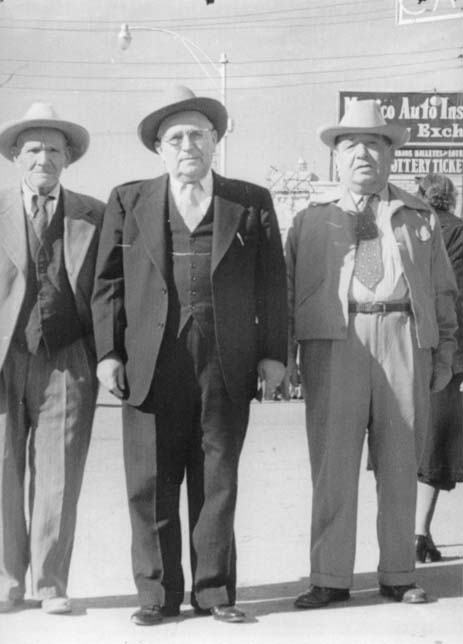 "In September 1915, Pancho Villa arrived in Dublan with an army of 17,000 soldiers, many with their families. The long trains were loaded down with furniture, pigs, chickens, birds, dogs, cats, and even flower pots hanging from the sides of the freight cars. As the troops and the families began to settle, every vacant Mormon home was filled. Every vacant lot was put to use, and smoke from their campfires arose from every yard. There was hardly a spot of ground, including sidewalks for miles around which was not occupied. Villa established his headquarters in Nuevo Casas Grandes, but many of his officers had the privilege of choosing the more choice homes in Dublan. The soldiers took what was left. "In September 1915, Pancho Villa arrived in Dublan with an army of 17,000 soldiers, many with their families. The long trains were loaded down with furniture, pigs, chickens, birds, dogs, cats, and even flower pots hanging from the sides of the freight cars. As the troops and the families began to settle, every vacant Mormon home was filled. Every vacant lot was put to use, and smoke from their campfires arose from every yard. There was hardly a spot of ground, including sidewalks for miles around which was not occupied. Villa established his headquarters in Nuevo Casas Grandes, but many of his officers had the privilege of choosing the more choice homes in Dublan. The soldiers took what was left.
|
Andres has Two Encounters with Pancho Villa
as told to his son Andy
|
"Dad recalls that the first time Francisco Villa captured Casas Grandes, he sent a group of army officers to round up and arrest all of the leading men in Casas Grandes and especially the merchants. Inasmuch as Colonia Dublan was only one mile away from Casas Grandes, and my father had the only store in Colonia Dublan, he was picked as one to be arrested. The arresting officers were in charge of a Colonia Guajardo. However, within a minute or two after their arrival at my father's store it came out that this colonel was from the same state and area as my father. This, of course, gave them a common bond and so the colonel began talking very confidentially with my father and told him why everyone of the merchants were being arrested. The purpose was to extort silver and American money from them as Villa's treasury was pretty low on good money. But he told my father, "don't worry, paisano, I will tell you what to do." He did not arrest my father but rather asked him to accompany them, but under no circumstances to tell Villa that he didn't have any money, but to tell him that he would find some somewhere. My father then told the colonel that he was correct in saying that he did not have any money, but that he did have in his warehouse 5 or 6 kegs and boxes of horse shoes and horse shoe nails. The colonel was very surprised and said, "In that case you do not need any money, that is better than gold because all of our horses are lame for lack of horse shoes." He told my father to tell Pancho Villa that he was bringing some shoes and nails to donate to the cause, so my father got the nails and shoes and put them in a wagon and the group all proceeded to Casas Grandes to meet General Villa. When they entered the general's office dad introduced himself as a sympathizer of the revolutionary cause, saying he had brought some horse shoes and nails to donate to the cause. General Villa came rushing towards my father with outstretched arms in such a manner that my father was very frightened. The General's fame for ruthlessness was wide spread, and dad didn't know his intentions until the fear left him after General Villa gave my father a big abrazo. The General told dad that he expected to capture Chihuahua City, and if dad would come see him there, he would pay my father a very good price for all of his horse shoes and nails. My father told him that he didn't want any pay, he just wanted to donate it to the cause. After the interview, General Villa ordered a group of soldiers to accompany my father back to his store and home, and to stand guard and protect him from any molesting. Although General Villa was in and out of that area many times according to the fortunes of war, dad never saw him again until about 1918, after my father had moved to El Paso.
"While living in El Paso, dad was in the old Sheldon Hotel where the Plaza Hotel now stands and had occasion to meet a mining man who owned a mine in Chihuahua, which mine had been closed by order of General Villa. This man was looking for someone who could help him get the mine back into operation, and he asked my dad for help. At this time, Villa was in full control of northern Mexico, and so my father and the mining man went to Chihuahua City, and sought an interview with General Villa.
"Although the general had only seen dad once in his life, the minute he saw him again, the general said in a loud voice, "this is el chaparrito (shorty) from Dublan who got us out of the predicament we were in with our horses." He then turned around and ordered a colonel by the name of Medina to give my dad 30 thousand pesos. Again my father refused saying, "I didn't come for that purpose. What I gave I gave to the cause and I did it voluntarily." But General Villa insisted on it, and personally placed the money in my father's hands. My father then stated the real purpose in coming was not to get the money but to ask a favor of him. He introduced the mine owner and stated that he wanted to re-open a mine that had been closed. The General immediately turned to colonel Medina and said, "Give him a letter to reopen the mine." After an absence of only one day and a half, he returned to El Paso with the letter and $30,000.00 (pesos). The mining man gave my father $1,000.00 for his help."
"During this time Andres was often asked to preach to the soldiers and families, to tell them something of the Mormon beliefs. On a number of occasions, army mothers carrying their little ones in arms, gathered in front of his home on Sunday mornings and asked him to baptize their babies. They believed that he was a Catholic priest. Their sadness and disappointment was pathetic when they learned that he was not. However, they wiped away their tears when he explained to them how baptism was for the purpose of cleansing one from sin, and that little babies had no cause for the remission of sin for their little hearts and souls were pure and free from sin.
"Years later, Andres received quite a number of requests for the Book of Mormon from ex-soldiers of the Villa army who had heard the Gospel during the time of the Revolution. It was always a joy to him when he was able to tell people something about Mormonism.
"In April, 1916, at the time of the General Conference in Salt Lake City, Joseph C. Bentley was set apart as President of the Juarez Stake by President Joseph F. Smith and was told to go home and reorganize the Juarez Stake. Some time after this, Andres was set apart as a member of the Juarez Stake High Council, thus becoming the first of his people to serve as a High Councilman. At that time he was also ordained to the office of High Priest.
"In January, 1917, he moved his family to El Paso, Texas, and established a wholesale business in Ciudad Juarez, Chihuahua, across the river from El Paso. The stockholders were Andres, his brothers-in-law, Josiah Spencer and Joseph Williams, as well as Bishop Arwell Lee Pierce and John W. Wilson. A.L. Anderson served as bookkeeper. Josiah Spencer and Joseph Williams were in charge of the Dublan branch store. Bishop Pierce also managed a lumber company in Ciudad Juarez.
"The Union Mercantile S.A. was the name given to the business, and it became a thriving enterprise until the 1930s when the depression, taking its toll everywhere, forced the Union Mercantile to close its doors. Andres, however, continued doing business in his own name and has been employed in this capacity to the present writing (1967).
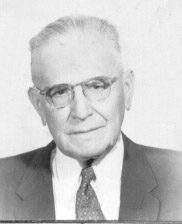 "Andres was elected President of the Ciudad Juarez Chamber of Commerce, and was one of the founders of the Rotary Club in that city, giving him contact with ambassadors, congressmen, lawyers, newspaper editors and leading citizens of both republics. These contacts, in various ways, helped overcome misunderstanding and prejudice against the Saints and their religion. As an example, during a convention in Ciudad Juarez, delegates from all over the Republic of Mexico and southwestern United States met together. One of the leading editors of Mexico City told Andres about an article which he had written concerning the Mormons. The article was to be published upon his return to Mexico City. The editor asked Andres to read the manuscript and questioned him about the Mormons. He was pleased, of course, to answer his questions. When he came upon an accusation in the article that the Latter-day Saints people were unfriendly to Mexico and her people, he quickly corrected this misconception. He stated that perhaps a few individuals manifested unfriendly attitudes, but that Mormons as a whole were enduring hardships in order to remain in Mexico and help the natives to a better way of life. He explained something of the missionary system which was set up whereby young men and women spent two or three years among the natives in a effort to help them. Page after page of the manuscript was corrected until the finished product bore faint resemblance to the original script. This is only one example, but it is typical of the many opportunities afforded Andres to correct misconceptions concerning the Latter-day Saints. "Andres was elected President of the Ciudad Juarez Chamber of Commerce, and was one of the founders of the Rotary Club in that city, giving him contact with ambassadors, congressmen, lawyers, newspaper editors and leading citizens of both republics. These contacts, in various ways, helped overcome misunderstanding and prejudice against the Saints and their religion. As an example, during a convention in Ciudad Juarez, delegates from all over the Republic of Mexico and southwestern United States met together. One of the leading editors of Mexico City told Andres about an article which he had written concerning the Mormons. The article was to be published upon his return to Mexico City. The editor asked Andres to read the manuscript and questioned him about the Mormons. He was pleased, of course, to answer his questions. When he came upon an accusation in the article that the Latter-day Saints people were unfriendly to Mexico and her people, he quickly corrected this misconception. He stated that perhaps a few individuals manifested unfriendly attitudes, but that Mormons as a whole were enduring hardships in order to remain in Mexico and help the natives to a better way of life. He explained something of the missionary system which was set up whereby young men and women spent two or three years among the natives in a effort to help them. Page after page of the manuscript was corrected until the finished product bore faint resemblance to the original script. This is only one example, but it is typical of the many opportunities afforded Andres to correct misconceptions concerning the Latter-day Saints.
"In 1947, Andres became the first native of Mexico to be set apart as a Counselor to a Mission President.
Elder Spencer W. Kimball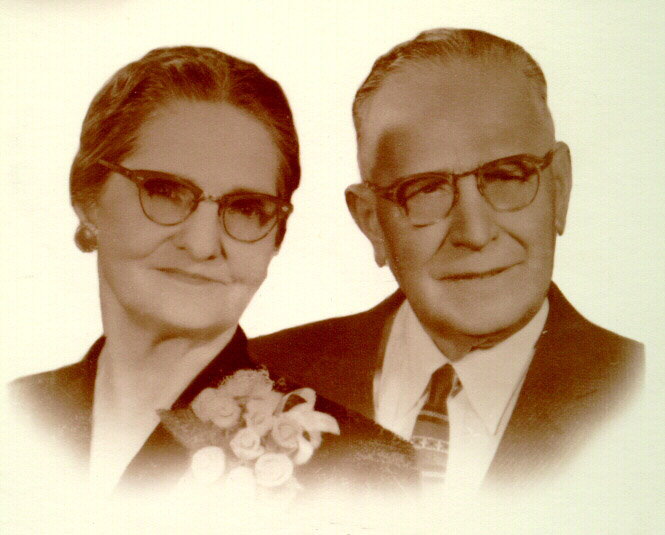 set him apart asCounselor to President Lorin F. Jones of the Spanish-American Mission. He labored in that role for seven years, thus renewing an old friendship with Lorin and Ivie Huish Jones, whom he had known at the Academy, and in Colonia Dublan, as he lived in the Huish home before his marriage. President Jones and Andres worked happily together in the Mission as few men work together. Andres was released from the Mission in 1952 and set apart as a High Councilman in the newly formed El Paso Stake. Not long after this, Mission Headquarters was changed from El Paso to San Antonio, Texas. On May 8, 1960, Andres was a first again when Elder Delbert L. Stapley ordained him a Patriarch in the El Paso Stake of Zion. For years he participated happily in the Lamanite temple excursions to Mesa, Arizona, where he enjoyed blessing the Saints and listening to their strong and faithful testimonies. It is truly a fitting culmination to a life rich in service and in Church activities. set him apart asCounselor to President Lorin F. Jones of the Spanish-American Mission. He labored in that role for seven years, thus renewing an old friendship with Lorin and Ivie Huish Jones, whom he had known at the Academy, and in Colonia Dublan, as he lived in the Huish home before his marriage. President Jones and Andres worked happily together in the Mission as few men work together. Andres was released from the Mission in 1952 and set apart as a High Councilman in the newly formed El Paso Stake. Not long after this, Mission Headquarters was changed from El Paso to San Antonio, Texas. On May 8, 1960, Andres was a first again when Elder Delbert L. Stapley ordained him a Patriarch in the El Paso Stake of Zion. For years he participated happily in the Lamanite temple excursions to Mesa, Arizona, where he enjoyed blessing the Saints and listening to their strong and faithful testimonies. It is truly a fitting culmination to a life rich in service and in Church activities.

|
History of Andres Carlos Gonzalez, Sr.
written by his wife, Minnie Myrtle Spencer Gonzalez
15 March 1890 - 28 March 1974
Colonia Pacheco, Chihuahua, Mexico - El Paso, Texas
|
"Andres C. Gonzalez was born on the 4th day of February, 1887, in Nadadores, Coahuila, Mexico. His father, Juan Francisco Gonzalez, was the only Protestant in the community. When possible, he would ride many miles on horseback, to Monclova, the Capital of the State, at that time, to meet with his fellow protestants. Nadadores was a staunch Catholic Community, yet Don Juan Francisco was loved and respected as the school professor. He and his wife, Juliana Rodriguez Gonzalez, had a large family and their son, Andres, was their 10th child. Five more children came later. In the years following, the Lord guided his footsteps as he came to know the Lord's great Plan of Salvation and help roll on His work on earth. According to one of the Lord's latter-day patriarchs, he was told how the Lord loved him and would over-rule everything for his good; that the Lord had been mindful of him from the day he was born, and that the Lord was protecting him from pitfalls which would have otherwise come to him.
"At the time of his birth little thought was given to certain irregularities in connection with the family. Mother Juliana was in the habit of having her babies taken to church and baptized by the Priest very soon after birth. But little Andres had to wait a few months as she planned for her cousin and her husband, Doctor Buford of San Antonio, Texas, to be the honored God-parents. They were in the habit of coming to Nadadores every summer to visit friend and kin-folks. The baby could wait. Summer came, but the Bufords did not. They would wait another year. Another summer came, but no Buford god-parents. The next summer past, and the next, and the next, and the boy was by this time nick-named 'the Jew' because he was a big boy and still not baptized by the Catholic Priest. Eight years past before the Bufords finally came. Andres was, at last, to be 'baptized' and extravagant preparations were made for the occasion.
"The Priest was delighted to administer the solemn rites to this poor little 'Jew', but when he turned to dip his hand in the holy water, the lad ran out of the back door, all to the horror of his mother and all who were present. Thus he was never baptized into the Catholic Church.
"Andres' father's brothers were all men of means and prosperty, but none were any more respected than Don Juan Francisco, the school professor, who had more children than any of them. With little means and limited resources, he still educated his sons to have ambition and to have a desire to achieve something in life. They naturally grew up yearning for growth and development and a better way of life than was afforded in their small home-town.
"His brother, Manrique, who was born in 1880, left home in 1898 at the age of 18 years and ended up in Colonia Juarez, Chihuahua, where he attended school. He felt that by going 'North' he would better himself. And after joining the church, he married a fine Mormon woman by the name of Olive Merrill. They moved to Logan, Utah, where she assisted him in attending Agricultural College, and where he later received his Bachelors Degree.
"Knowing his brother was married and was studying at the JSA, Andres, also very ambitious, decided to travel north where he could go to school and be near his brother. He arrived in Colonia Juarez on the 15th day of February, 1904, the night Manrique's and Olive's first child, Merrill Gonzalez, was born.
"Colonia Juarez was a pretty little village with a winding scenic drive around the mountain where the traveler suddenly dropped into a little green heaven. The town consisted of lovely American homes with tall, beautiful poplar and cottonwood trees and also stately old weeping willows, with shrubbery and flowers of every description, and with the Piedras Verde River running through the middle of town.
"Andres tells how the stage driver, Sixtus R. Johnson, explained to him all about the Mormons as they traveled along. He told the young adventurer about their habits and beliefs, and when he learned that they did not smoke or chew tobacco or take any kind of stimulating drinks, he knew that these people whom he had come to live were different to any people he had ever known. Immediately he sensed a deep desire to adhere to their way of life. When they were about half way down the scenic drive, he turned to Brother Johnson, took his cigarette from his lips, threw it to the ground and said, "this is my last cigarette," and it was. He went to live in the home of Bishop Joseph C. Bentley and "Aunt Maggie" Bentley where he milked cows for his room and board. He also secured a job helping Brother Morris Michelson, a stone cutter who carved the eagle over the door of the new Juarez Stake Academy building. While at work, Brother Michelson explained the Mormon belief of paying tithing, and at once Andres felt the desire to pay his. He would love to live like the fine people around him, and so he paid his tithing regularly for a year or more before he finally joined the church.
"There were nine other young Mexican men attending the Academy at this time, all close pals living and boarding in the Bentley home. One was a cousin, Manuel W. Gonzalez, the others were sons of the town officials of Old Casas Grandes, the County seat. When they learned that Andres was seriously thinking of being baptized into the LDS Church, they boycotted him and would go weeks without speaking to him, while eating at the same table. They made it extremely difficult for him, even threatened to tar and feather him and to tin-can him and run him out of town, if he joined the Mormons.
"However, Andres finally gained courage to defy them and was baptized a member of the Church of Jesus Christ of Latter-Day Saints on February 3, 1905, by his brother, Manrique, and was confirmed the following day, February 4th, by Apostle Mathias F. Cowley. After Manrique left the JSA to gain higher education, Andres took his place and taught Spanish in the Academy. He wrote articles for the "Southern Rays", the school publication, often including beautiful selections of poetry. He took part in the plays put on by the Dramatic club and took an active part in all social activities.
"In 1907, he took a position as stenographer for Henry E. Bowman in the Union Mercantile Company in Colonia Dublan. Here is where he and I met, as I also worked in the Union Mercantile and so did my brother Josiah. Andres and Josiah both loved music and each of them played a number of instruments. They often sang together and they organized an orchestra with Andres' cousin, Solomon Rodriguez, and others and played on all special occasions, Ward and Stake. The two boys, Andres and Josiah became such devoted friends that we girls called them David and Jonathan.
"He first boarded in the home of Brother and Sister James Huish, parents of 'Aunt' Ivie H. Jones. Then one day he told me he was "picking up his duds" and moving. That night when I got home from work I found he had moved into our home as a boarder with my mother. The three of us walked to and from work every day.
"Andres and I were married December 12, 1908, a month after my Sister Jennie, was married. Carlos our first child was born April 26, 1910. He was a beautiful child with grandpa Spencer's complexion, dark brown hair, fair skin with rosy cheeks and deep blue eyes. It was truly a day of sorrow when he died March 15, (my birthday) 1911, while his daddy was on his mission in Mexico City under President Rey L. Pratt. It was during the revolution and there were no doctors to be had, and due to the fact that there were no trains, telegraph service or any kind of mail service, it was two months before his daddy received my letter telling of his death. Yet Andres knew the night he died and bore his testimony to that effect in a conference in the mission field. Andres saw him in a dream. He had many wonderful experiences during those two precious years spent in the service of the Lord.
"Every day his testimony was strengthened to the truthfulness of the gospel of Jesus Christ. One experience which has always been of great satisfaction to Andres, was one in fulfillment of a promise made to him that he would go on a mission and would teach the gospel to the HIGHEST and to the LOWEST among his native people. He truly labored among some of the most humble, dejected, poor Indians found in different little towns, and again, had the honor and privilege of bearing his testimony to Mexico's new President, Francisco I. Madero, and to the Vice President, Pino Suarez. He gave them each a Book of Mormon which was graciously received with the promise to read the historical book. These great men listened with interest, surprised that it told of their forefathers. History shows how these good men were murdered later by their fellow revolutionists. Who can know if they ever kept their promise. A few years later Andres had the joy and satisfaction of being baptized for each of them in the Salt Lake Temple.
"Andres was honorably released from his mission two months after the Mormon Exodus from Mexico, 1912, the FIRST native of Mexico to fill a full-time mission. In 1914 he was ordained a High Priest and made a member of the High Council of the Juarez Stake. Again he was the FIRST of his people to fill his responsible position in the church.
"As before stated, Andres has been a devoted tithe payor since before he became a member of the Church. He has been just as faithful in endeavoring to keep the other commandments of the Lord. As a result he has been greatly blessed with inspiration and guidance from the Lord. As an example, on one occasion, back in 1915, our lives and home were preserved through his gift of inspiration. It has played such a part in his life through the years that his companions and associates often say, "Andres, we can always be sure of your hunches."
"It was a Priesthood night when we had supper early so he would not be late for his meeting. Lenore was about a year and a half old and I was expecting the stork again in a couple of months. We were living in mother's Dublan home and had a store in the west half of the house. I tended to the store much of the time while Andres was out taking orders, as he handled both retail and wholesale accounts. It gave me little time for sewing in preparing for the new baby which incidently, turned out to be twins, Marva and Maurine.
"Andres rolled the sewing machine into the kitchen to avoid disturbing Lenore who was asleep in the front room next to the store. The west side of the house had been added to the original two rooms and kitchen, but father had never gotten around to having a door between the two rooms cut through. Thus the store was separate and apart from the rooms where we lived. The store was one extra long room with two small rooms at the north which were used for storing merchandise. The one on the west side was full of cases of kerosene or coal oil. The other, besides storing merchandise, was where the staircase led to the rooms upstairs.
"After Andres rolled the machine into the kitchen and had given us a good-bye kiss, he left for his Priesthood meeting by way of the back kitchen door so as not to awaken 'Leoli', as her daddy called her. I had hardly more than sat down to the machine when Andres was back. I looked up to see what he had forgotten, but he only laughed saying, "I came back for another kiss." He again, and at my inquiring look, he said, "I wanted to be sure you were alright. Just one more kiss." As he went out I said, "If it is this hard for you to get to your meeting tonight, you had better stay home with me." He was gone. But it was only a few seconds until he was back again, and as he opened the door I knew something was wrong and hurried to him.
"I was alarmed at the look of apprehension on his face. He took me by the arm; and as we rushed out of the door he said, "Come see what you make of this." By the time the words were out of his mouth, we were around the east side of the house and as he said, "this" he pointed to a bright light that could be seen through a long wide crack under the roof of the house. The gable had once fallen in (before the exodus) during one of the valley's worst windstorms; and in repairing it, the carpenter, slothful at his task, left a strip unfinished across the gable under the roof. Needless to say, I was startled. Andres said, "it can mean only one of two things. Either there are burglars in the store or the house is on fire." If burglars, they would need a mighty bright light to see within the store on the other side of the house. We almost flew around the south side to the front door of the store. Andres quickly opened the door and found the store full of smoke. We could see no blaze, but we knew the store was on fire. Up the stairway we rushed, I at Andres' heels. At the top of the stairs he screamed, "This fire is over the coal-oil! Water quick, or it will explode." I never went downstairs so fast. We were at the well drawing water in a flash. As luck would have it the water containers on either end of the pully-rope were five gallon cans to make the watering of the cows and calves easier. We pulled up the well water, unfastened the five gallon cans and carried them up the stairs, ten gallons at a time. We soon had the fire out.
"It is surprising what one can do in excitement. Little Leoli lay peacefully asleep. A mother can do almost the impossible when her child is in danger. In spite of the mature pregnancy, I had carried my water cans up, and up again and again right with Andres, thinking of my little redhead.
"There was not much question what might have happened, had her good daddy not been warned of danger and felt powerless to go on to his meeting, by the Holy Spirit's promptings while the fire smoldered, not yet a flame, unable to give the warning light. By the time Andres had left for the third time, hesitant and bewildered, the fire was ablaze, and by that time the fire burst forth in fury with the flames already licking the low ceiling.
"Had I later smelled and discovered the fire, I would have been helpless not having kept the store keys. Had the open cans of coal-oil exploded, the others would have done so. Leoli and I would perhaps never have known what happened, with coal-oil cans stacked to the ceiling. We felt it was wonderful to have a husband and daddy worthy of the choice blessings of inspiration and Holy Spirit's promptings. We never quit thanking our Father in Heaven for His blessings.
"In 1917 Andres moved his family to El Paso, Texas, where he entered the wholesale mercantile business. He and Josiah had been in business together in Dublan with another brother of mine, Joseph Spencer. Josiah and Joseph ran the Dublan store. The new business, with A.L. Pierce, John W. Wilson and Andres was located in Ciudad Juarez, with Andres as General Manager. A.L. Anderson was the bookkeeper. Bishop A.L. Pierce had a lumber company which his father had left him in Ciudad Juarez.
"Here we prospered, had a good home and our family gradually increased. We were the proud parents of nine lovely children, five boys and four girls, Carlos, the oldest, died in Mexico before we moved to El Paso. Our 'Jo-Joe' died in 1935 in El Paso. Our children are all grown now and we have twenty-eight wonderful grandchildren.
"Throughout the years Andres' faith has increased and he has had the staunch belief that the Lord's work is TRUE and EVERLASTING, that He watches over and blesses ALL who will endeavor to keep His commandments and serve Him. My testimony is and always has been, that he was led by the Spirit of the Lord to come north and locate, where opportunities to preach the gospel and to serve his fellowmen have never ceased. He has been in a position where he could do much good, both for the Mexican and American Latter-Day Saints, especially during World War I and II. When in the mission field he made two important resolutions: to use EVERY opportunity that came his way to bear his testimony and plant gospel seeds, and if no opportunity came, to help missionaries who were called to the mission field. To this day he has kept these resolutions. One little knows when a seed is planted, when it will take root and grow. Sometimes it takes years. Sometimes they never take root. After Andres was located here on the border, he found many seeds sprouting from conversations and preaching which he did during Pancho Villa's stay with his army of 17,000 soldiers and many of their families, in Dublan, during the second decade of this century. On the border he received many letters requesting Mormon literature and Books of Mormon. They came from Mexico City, San Luis Potosi, Durango, Yucatan, Tampico, Vera Cruz, and many parts of the Republic, as well as San Antonio, Eagle Pass, Texas, Los Angeles and other parts of the United States. After the revolution the people settled down wherever they could to a more normal state of living. Many Mexican people flocked to the United States, and Andres never lacked opportunities to speak of Mormons and of Mormonism. As President of the Juarez Chamber of Commerce, Inspector of Schools, President of the Rotarians, he was in a position to help tear down prejudice and misunderstanding. He met ambassadors, congressmen, editors, and leading citizens, even most of the Presidents of the nation, and was always ready to defend his religion and the Mormon people in Mexico.
"On one occasion, for example, during a convention in Cuidad Juarez with delegates from all parts of the Republic, Andres met a newspaper editor from Mexico City, who was very pleased to know him and to find that he was so well informed on conditions in the Mormon colonies. He said he had written an article about the Mormons near Casas Grandes (Chihuahua) and their agricultural development in that section of the country, and perhaps Andres could give him some valuable information. He told how the article was to be published as soon as he returned to Mexico City. He took the manuscript from his pocket with a great deal of pride and handed it to Andres to read. Before a half page was read Andres found the editor very misinformed. He was grateful that he had this opportunity to tell the newpaper editor the truth about the entire subject covered. In spite of speaking of the colonists as 'an industrious people' the author referred to them as a people clamoring for the U.S. flag to be hoisted over Mexico similar to the unloyal Texans in 1836. These and other misconstrued statements were corrected and new light given on his material. The man was told that even though some individuals might have shown such an attitude, the Colony people as a whole were doing everything possible to help the native people. He was told how young men and women went out over his nation, paying their own expenses, to show the Mexican people a better way of life.
"Andres, with manuscript in hand, went down the lines, paragraph after paragraph, explaining and correcting. When he had finished, the article had little kinship to the one in the beginning.
"This is only one illustration of how the 'Sentinel' on guard near the International Bridge in Ciudad Juarez was ever watchful to clear misunderstandings or misconceptions on the part of both people.
"The Andres Gonzalez family was one of the few charter member families of the El Paso Branch of the Church which was organized by Mexico colonists who sought security in El Paso after the Exodus. His sons and daughters have grown up full of faith, loving their ward and the people in it. They are faithful members because they had a faithful father to set the example. He has had the same high ideals and same ambition for his children that he always cherished for himself. They have appreciated the many opportunities afforded them in a good community and in the many LDS church activities, and have tried to make the most of them. They are GOOD sons and daughters and their parents are very proud of them and love them dearly.
"Jesus said, and the gospel teaches, "Seek first the Kingdom of God and its righteousness, and the other things will be added." This is what Andres has tried to do, and has tried to teach it to his children. In his life the Lord comes FIRST in everything. All through the years he has taken his place in the church and in business. For a time the El Paso Branch of the church belonged to the Juarez Stake. Around 1920, five cars full of El Paso LDS people took President Grant and his family from El Paso to a conference in Colonia Juarez. We went by way of Columbus, New Mexico. Shortly thereafter Andres received a gift from President Grant in token of the nice trip. It was one of Edgar A. Guest's choice book of poems, with President Grant's favorite poems underlined and the book autographed.
"Not too long after this trip, the El Paso Branch was changed from the Juarez Stake to the St. Joseph State with headquarters in Thatcher, Arizona. Later it became a part of the Mount Graham Stake with headquarters in Safford, Arizona. In 1952, the El Paso Stake was organized and during all these years the Gonzalez' have been 100% back of their Stake President and their Bishop. Andres has served in the Mutual Presidency, Supervisor of Ward Teachers and many important positions.
"Not long after Andy received his law degree from the University of Texas, his father was set apart as the FIRST Assistant to a Mission President to be ordained as such in the history of the church. It was something NEW, and Apostle Spencer W. Kimball came directly to El Paso after the General Conference in Salt Lake City. In the Spanish-American Mission Home (about 1947), he set Andres apart as President Lorin F. Jones' First Counselor over said mission. So once again he was the FIRST of his people to fulfill such a mission.
"In 1952, when the El Paso Stake was organized, Andres was set apart once again as a High Councilor. But of all the positions held in the church, the most humbling one came to him on May 8, 1960, when he was ordained to the high and holy calling of a Patriarch in the Church of Jesus Christ of Latter-Day Saints. Again, he was the first of his people to receive this high calling, and the JOY of it was realized last week (October 1960) when he gave seventy-one patriarchal blessings to worthy members of the Northern and Southern Mexican Missions in Mexico. They were given in Mesa, Arizona, at the Lamanite Temple Excursion and at Conference where over two thousand ordinances were performed in the Arizona Temple. It was a day of rejoicing and the Saints were so over-joyed with their beautiful blessings that both men and women cried like babies. Another seventy patriarchal blessings were given to the same group of Saints from Mexico by Patriarch Lorin F. Jones. Again these two faithful Mission workers were laboring side by side in their Patriarchal calling. Few brothers have worked so loyally and faithfully together as those two old friends and Patriarchs. May the Lord bless them to the end.
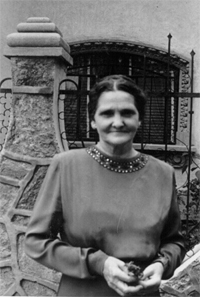
Minnie Myrtle Spencer Brown
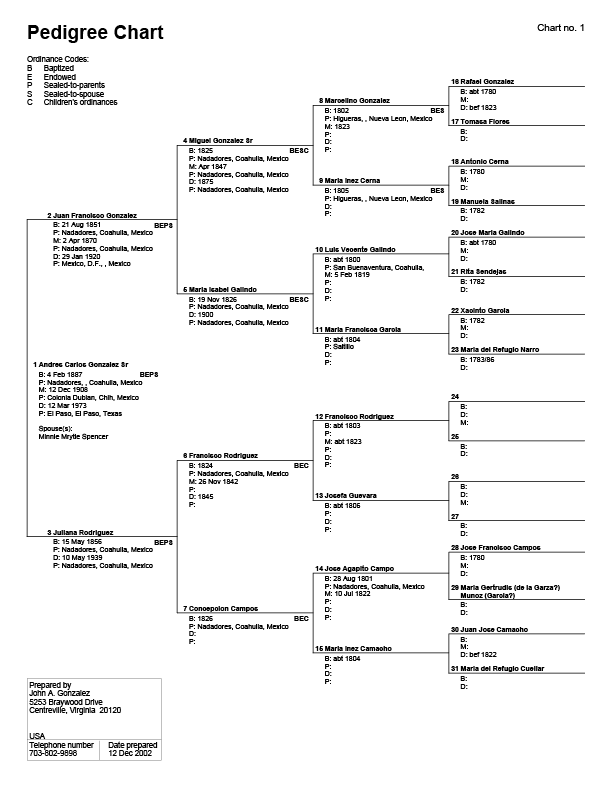
Sources:
PAF - Archer files = Orson Pratt Brown + Angela Gabaldon > Pauly Gabaldon Brown + Lilia Gonzalez del Palacios < Manrique Gonzalez + Regina Del Palacios ; Andres is Manriques' brother < Juan Francisco Gonzalez + Juliana Rodriguez Campos.
http://users.mstar2.net/jag2/index.htm
"Stalwarts South of the Border" by Nelle Spilsbury Hatch and Blaine Carmon Hardy. 1985. Page 207-211.
La Chirinola ("The Gossip"), webmaster J.C. Avena, grandson of Manrique Rodriguez Gonzalez.
Input by Dr. Ignacio Ernesto Gonzalez, son of Manrique Rodriguez Gonzalez.
Additions, bold, [brackets], some photos, etc., added by Lucy Brown Archer.
Copyright 2001 www.OrsonPrattBrown.org
|

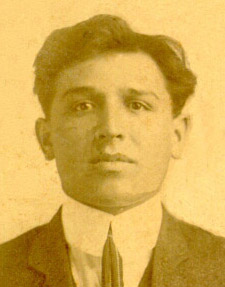

 "At the close of school in 1907, he went to Colonia Dublan where he accepted a position as stenographer with
"At the close of school in 1907, he went to Colonia Dublan where he accepted a position as stenographer with 
 "In August of 1910, Andres received a letter from 'Box B' in Salt Lake City, Utah, from the General Authorities of the Church. It was a call to go on a mission. He labored in the Mexican Mission for two years under President Rey L. Pratt. During these two years he had many experiences where the protection of the Lord was manifested. At one time, he and a companion slept in a crowded little home where one of the children was very ill. When they arose the following morning they discovered that the child had a severe case of smallpox; but the Lord shielded them from this infectious disease. On another occasion an effort was made to poison him and his companion, but it had no effect upon them.
"In August of 1910, Andres received a letter from 'Box B' in Salt Lake City, Utah, from the General Authorities of the Church. It was a call to go on a mission. He labored in the Mexican Mission for two years under President Rey L. Pratt. During these two years he had many experiences where the protection of the Lord was manifested. At one time, he and a companion slept in a crowded little home where one of the children was very ill. When they arose the following morning they discovered that the child had a severe case of smallpox; but the Lord shielded them from this infectious disease. On another occasion an effort was made to poison him and his companion, but it had no effect upon them.  "President Madero asked many questions about his old friends and stated, 'Those gentlemen are fine men, the kind Mexico needs to develop our country.' The Vice President, Pino Suarez, was present while the President related many things about the colonies and their people. This gave Andres the opportunity to teach some of the Gospel principles, fulfilling a Patriarchal Blessing promise which stated that he would teach the Gospel 'from the highest to the lowest' of his nation. He and his companion had been teaching some humble Indians before they were captured by the Zapatistas and therefore each had at hand a Book of Mormon. This they gave to the President and to the Vice President of Mexico. The two gentlemen were courteous and seemed interested in what the Elders told them of the early inhabitants of this Western Hemisphere. Both the President and the Vice President promised to read the Book of Mormon.
"President Madero asked many questions about his old friends and stated, 'Those gentlemen are fine men, the kind Mexico needs to develop our country.' The Vice President, Pino Suarez, was present while the President related many things about the colonies and their people. This gave Andres the opportunity to teach some of the Gospel principles, fulfilling a Patriarchal Blessing promise which stated that he would teach the Gospel 'from the highest to the lowest' of his nation. He and his companion had been teaching some humble Indians before they were captured by the Zapatistas and therefore each had at hand a Book of Mormon. This they gave to the President and to the Vice President of Mexico. The two gentlemen were courteous and seemed interested in what the Elders told them of the early inhabitants of this Western Hemisphere. Both the President and the Vice President promised to read the Book of Mormon. "In September 1915, Pancho Villa arrived in Dublan with an army of 17,000 soldiers, many with their families. The long trains were loaded down with furniture, pigs, chickens, birds, dogs, cats, and even flower pots hanging from the sides of the freight cars. As the troops and the families began to settle, every vacant Mormon home was filled. Every vacant lot was put to use, and smoke from their campfires arose from every yard. There was hardly a spot of ground, including sidewalks for miles around which was not occupied. Villa established his headquarters in Nuevo Casas Grandes, but many of his officers had the privilege of choosing the more choice homes in Dublan. The soldiers took what was left.
"In September 1915, Pancho Villa arrived in Dublan with an army of 17,000 soldiers, many with their families. The long trains were loaded down with furniture, pigs, chickens, birds, dogs, cats, and even flower pots hanging from the sides of the freight cars. As the troops and the families began to settle, every vacant Mormon home was filled. Every vacant lot was put to use, and smoke from their campfires arose from every yard. There was hardly a spot of ground, including sidewalks for miles around which was not occupied. Villa established his headquarters in Nuevo Casas Grandes, but many of his officers had the privilege of choosing the more choice homes in Dublan. The soldiers took what was left.  "Andres was elected President of the Ciudad Juarez Chamber of Commerce, and was one of the founders of the Rotary Club in that city, giving him contact with ambassadors, congressmen, lawyers, newspaper editors and leading citizens of both republics. These contacts, in various ways, helped overcome misunderstanding and prejudice against the Saints and their religion. As an example, during a convention in Ciudad Juarez, delegates from all over the Republic of Mexico and southwestern United States met together. One of the leading editors of Mexico City told Andres about an article which he had written concerning the Mormons. The article was to be published upon his return to Mexico City. The editor asked Andres to read the manuscript and questioned him about the Mormons. He was pleased, of course, to answer his questions. When he came upon an accusation in the article that the Latter-day Saints people were unfriendly to Mexico and her people, he quickly corrected this misconception. He stated that perhaps a few individuals manifested unfriendly attitudes, but that Mormons as a whole were enduring hardships in order to remain in Mexico and help the natives to a better way of life. He explained something of the missionary system which was set up whereby young men and women spent two or three years among the natives in a effort to help them. Page after page of the manuscript was corrected until the finished product bore faint resemblance to the original script. This is only one example, but it is typical of the many opportunities afforded Andres to correct misconceptions concerning the Latter-day Saints.
"Andres was elected President of the Ciudad Juarez Chamber of Commerce, and was one of the founders of the Rotary Club in that city, giving him contact with ambassadors, congressmen, lawyers, newspaper editors and leading citizens of both republics. These contacts, in various ways, helped overcome misunderstanding and prejudice against the Saints and their religion. As an example, during a convention in Ciudad Juarez, delegates from all over the Republic of Mexico and southwestern United States met together. One of the leading editors of Mexico City told Andres about an article which he had written concerning the Mormons. The article was to be published upon his return to Mexico City. The editor asked Andres to read the manuscript and questioned him about the Mormons. He was pleased, of course, to answer his questions. When he came upon an accusation in the article that the Latter-day Saints people were unfriendly to Mexico and her people, he quickly corrected this misconception. He stated that perhaps a few individuals manifested unfriendly attitudes, but that Mormons as a whole were enduring hardships in order to remain in Mexico and help the natives to a better way of life. He explained something of the missionary system which was set up whereby young men and women spent two or three years among the natives in a effort to help them. Page after page of the manuscript was corrected until the finished product bore faint resemblance to the original script. This is only one example, but it is typical of the many opportunities afforded Andres to correct misconceptions concerning the Latter-day Saints.  set him apart asCounselor to President Lorin F. Jones of the Spanish-American Mission. He labored in that role for seven years, thus renewing an old friendship with Lorin and Ivie Huish Jones, whom he had known at the Academy, and in Colonia Dublan, as he lived in the Huish home before his marriage. President Jones and Andres worked happily together in the Mission as few men work together. Andres was released from the Mission in 1952 and set apart as a High Councilman in the newly formed El Paso Stake. Not long after this, Mission Headquarters was changed from El Paso to San Antonio, Texas. On May 8, 1960, Andres was a first again when Elder Delbert L. Stapley ordained him a Patriarch in the El Paso Stake of Zion. For years he participated happily in the Lamanite temple excursions to Mesa, Arizona, where he enjoyed blessing the Saints and listening to their strong and faithful testimonies. It is truly a fitting culmination to a life rich in service and in Church activities.
set him apart asCounselor to President Lorin F. Jones of the Spanish-American Mission. He labored in that role for seven years, thus renewing an old friendship with Lorin and Ivie Huish Jones, whom he had known at the Academy, and in Colonia Dublan, as he lived in the Huish home before his marriage. President Jones and Andres worked happily together in the Mission as few men work together. Andres was released from the Mission in 1952 and set apart as a High Councilman in the newly formed El Paso Stake. Not long after this, Mission Headquarters was changed from El Paso to San Antonio, Texas. On May 8, 1960, Andres was a first again when Elder Delbert L. Stapley ordained him a Patriarch in the El Paso Stake of Zion. For years he participated happily in the Lamanite temple excursions to Mesa, Arizona, where he enjoyed blessing the Saints and listening to their strong and faithful testimonies. It is truly a fitting culmination to a life rich in service and in Church activities.
